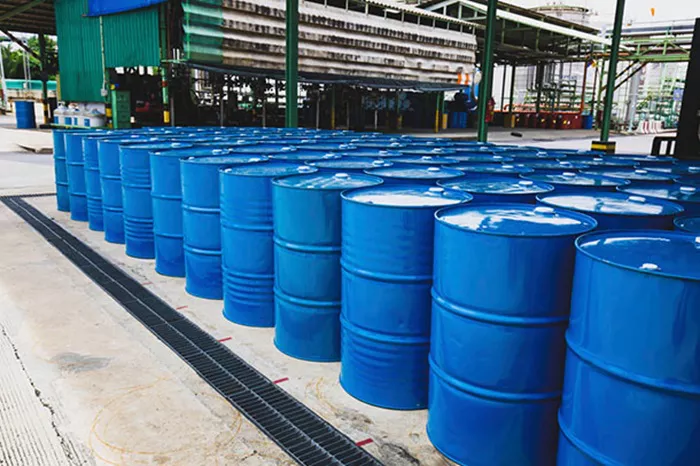Storing gasoline safely is crucial to prevent accidents and ensure compliance with regulations. Whether you’re storing gasoline for emergency preparedness or regular use, understanding the right containers and practices is essential. This comprehensive guide explores the best practices, container options, safety tips, and legal considerations for storing gasoline at home.
Understanding Gasoline Storage
Gasoline is a highly flammable liquid that requires careful handling and storage. Improper storage can lead to fire hazards, environmental damage, and health risks. Here’s what you need to know to store gasoline safely and effectively.
Importance of Safe Storage
Safety: Proper storage reduces the risk of fire and explosion.
Environmental Protection: Prevents spills that can contaminate soil and water.
Legal Compliance: Follows regulations to avoid fines and penalties.
Legal Considerations
Local Regulations: Check local laws regarding the storage of gasoline.
Container Standards: Use approved containers that meet safety standards.
Quantity Limits: Some areas impose limits on the amount of gasoline you can store.
Containers for Storing Gasoline
Choosing the right container is crucial for safe gasoline storage. Here are the recommended options:
1. Approved Gasoline Cans
Design: Red containers with safety features like flame arrestors and spill-proof lids.
Material: Made from high-density polyethylene (HDPE) to resist corrosion and prevent leaks.
Capacity: Available in various sizes from 1 gallon to 5 gallons for different storage needs.
2. Metal Safety Cans
Durability: Made from galvanized steel with a spring-closing lid to prevent vapors from escaping.
Safety: Features a flame arrestor to prevent ignition of gasoline fumes.
Compliance: Meets OSHA (Occupational Safety and Health Administration) and NFPA (National Fire Protection Association) standards.
3. Portable Fuel Tanks
Usage: Designed for larger quantities of gasoline, often used for marine or outdoor equipment.
Material: Constructed from durable materials like aluminum or steel.
Capacity: Ranges from 6 gallons to 30 gallons, with built-in handles for easy transportation.
4. Safety Tips for Using Containers
Labeling: Clearly label containers with “Gasoline” and handle with caution.
Ventilation: Store in a well-ventilated area away from ignition sources.
Temperature: Avoid storing gasoline in direct sunlight or near heat sources.
Child Safety: Keep out of reach of children and pets.
See also: What Is Blended Gasoline? [Revealed]
Safe Practices for Gasoline Storage
Following best practices ensures safe gasoline storage and minimizes risks:
1. Storage Location
Ventilation: Choose a well-ventilated, cool, and dry area away from living spaces.
Distance: Store gasoline away from heat sources, such as water heaters, furnaces, or direct sunlight.
Containment: Use a secondary containment system like a spill tray or drip pan to catch spills.
2. Handling Procedures
Pouring: Use a funnel to prevent spills and splashes.
Grounding: Ground metal containers to prevent static electricity buildup.
Personal Protective Equipment: Wear gloves and safety glasses when handling gasoline.
3. Emergency Preparedness
Fire Extinguishers: Have a fire extinguisher rated for gasoline fires nearby.
Emergency Numbers: Keep contact information for fire departments and poison control centers readily accessible.
4. Maintenance of Containers
Inspection: Regularly inspect containers for cracks, leaks, or signs of wear.
Cleaning: Clean containers with mild detergent and water to remove residues.
Practical Tips for Home Gasoline Storage
1. Small-Scale Storage
Home Generators: Store enough gasoline for emergency backup power.
Lawn Equipment: Keep a small amount of gasoline for lawnmowers, trimmers, and other garden tools.
2. Medium to Large-Scale Storage
Workshops: Store gasoline for power tools or equipment used in workshops.
Boats and RVs: Use portable fuel tanks for marine or recreational vehicle needs.
3. Disposal and Recycling
Unused Gasoline: Properly dispose of old or contaminated gasoline at designated hazardous waste facilities.
Recycling: Consider recycling gasoline through approved recycling programs.
Common Questions About Gasoline Storage
1. Can I store gasoline in plastic containers?
Plastic containers must be specifically designed for gasoline storage and labeled accordingly. Approved containers are typically made from HDPE and include safety features to prevent leaks and vapors.
2. How long can gasoline be stored?
Gasoline can generally be stored for up to 3 to 6 months in a sealed, approved container with stabilizers added. Proper storage conditions, such as cool temperatures and minimal exposure to air, help maintain gasoline quality.
3. What should I do with old gasoline?
Old gasoline should be disposed of properly at hazardous waste collection sites or recycling centers. Avoid pouring it down drains or onto the ground, as this can cause environmental damage.
4. Is it safe to store gasoline in a garage?
Gasoline should only be stored in a garage if it is well-ventilated, away from ignition sources, and compliant with local regulations. Consider using a flammable storage cabinet for added safety.
Conclusion
Safe gasoline storage is essential for preventing accidents and protecting the environment. By choosing approved containers, following safety guidelines, and adhering to legal regulations, you can safely store gasoline for various purposes at home. Remember to regularly inspect containers, handle gasoline with care, and be prepared for emergencies with proper safety measures in place. With these practices in mind, you can confidently store gasoline while minimizing risks and ensuring compliance with safety standards.
Related topics:
How Is Crude Oil Turned Into Gasoline?

